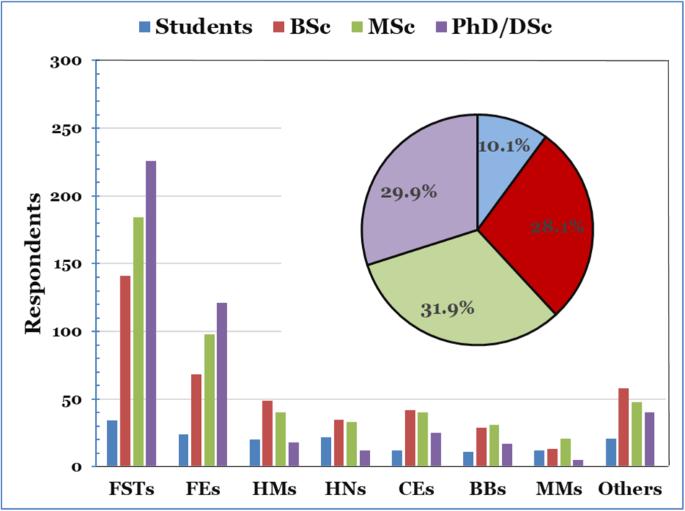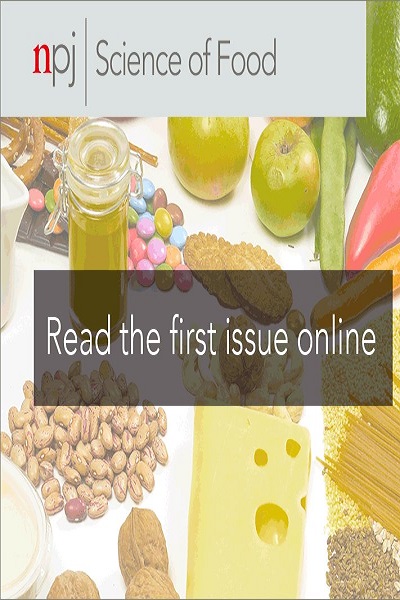Emerging challenges and opportunities in innovating food science technology and engineering education
IF 6.3
1区 农林科学
Q1 FOOD SCIENCE & TECHNOLOGY
引用次数: 0
Abstract
Progress in science, technology, innovation, and digital capabilities call for reassessing food science, technology, and engineering (FST&E) education and research programs. This survey targeted global professionals and students across food disciplines and nutrition. Its main objectives included assessing the status of FST&E higher education, identifying challenges and opportunities, and furnishing recommendations. Seven topics affecting the future of the FST&E curricula were evaluated by the panel as ‘High’ to ‘Very high’, namely: ‘Critical thinking’, followed by ‘Problem-solving projects’, ‘Teamwork/collaboration’, ‘Innovation/Open innovation’ and ‘Multidisciplinary’. The importance of academic partnership/collaboration with the Food Industry and Nutrition Sciences was demonstrated. Significant positive roles of the food industry in collaboration and partnerships were found. Other essential food industry attributes were related to internships, education, strategy, and vision. Collaboration between FST&E and nutrition sciences indicated the high standing of this direction. The need to integrate or converge nutrition sciences and FST&E is emphasized, especially with the growing consumer awareness of health and wellness. The study provides insights into new education and learning opportunities and new topics for future curricula.

食品科学、技术和工程教育创新面临的新挑战和新机遇。
科学、技术、创新和数字化能力的进步要求对食品科学、技术和工程(FST&E)教育和研究计划进行重新评估。本次调查的对象是全球食品学科和营养学领域的专业人士和学生。调查的主要目的包括评估食品科学、技术和工程高等教育的现状,确定挑战和机遇,并提出建议。小组将影响未来食品科技与教育课程的七个主题评为 "高 "至 "非常高",即批判性思维",其次是 "解决问题的项目"、"团队合作/协作"、"创新/开放式创新 "和 "多学科"。与食品工业和营养科学的学术伙伴关系/合作的重要性得到了证明。研究发现,食品工业在合作和伙伴关系中发挥着重要的积极作用。食品工业的其他基本属性与实习、教育、战略和愿景有关。FST&E 与营养科学之间的合作表明了这一方向的重要地位。研究强调了将营养科学与食品科技与教育相结合或融合的必要性,特别是随着消费者对健康和保健的认识不断提高。这项研究为新的教育和学习机会以及未来课程的新主题提供了见解。
本文章由计算机程序翻译,如有差异,请以英文原文为准。
求助全文
约1分钟内获得全文
求助全文
来源期刊

NPJ Science of Food
FOOD SCIENCE & TECHNOLOGY-
CiteScore
7.50
自引率
1.60%
发文量
53
期刊介绍:
npj Science of Food is an online-only and open access journal publishes high-quality, high-impact papers related to food safety, security, integrated production, processing and packaging, the changes and interactions of food components, and the influence on health and wellness properties of food. The journal will support fundamental studies that advance the science of food beyond the classic focus on processing, thereby addressing basic inquiries around food from the public and industry. It will also support research that might result in innovation of technologies and products that are public-friendly while promoting the United Nations sustainable development goals.
 求助内容:
求助内容: 应助结果提醒方式:
应助结果提醒方式:


